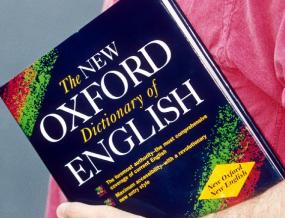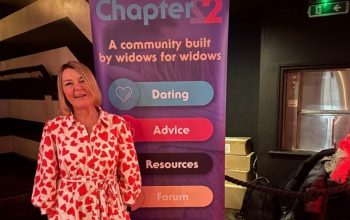
On a frosted December morning, where the faded sun looks ready for early-retirement and a line of bobbles and choked scarves waddle through the streets, it is hard to think that anyone could confuse Kingston, London with Jamaica.
Rather than the lapping of waves chiming on the sand and the chinking of ice wrapped in coke and rum, there is just the churning of cars rolling past, with the too frequent cry of sirens pelting up Penrhyn Road.
Yet that is the muddle that Nick Harding, Daily Mail reporter, finds himself in.
Disorientated by the cultural fusion of language he hears from middle-class children, and befuddled by overheard conversations on buses, Harding fears for the sanctity of the Queen’s English.
He worries that that poor communication skills and a prevalence of Multicultural Youth English (MYE), will condemn the next generation to a life of debt and unemployment.
This gloomy prospect is already ingrained in young people today who are told by the news that the next generation will be poorer than their parents; they will work harder and for longer.
But few would have though this would be down to how they spoke on the playground.
It is a wonder then that Joe Kirby and his friends can be so cheery, as they gangle through Kingston, wrapped in their woollies, just to hang out.
They left Esher College behind them after a summer heavily burdened with exams and have gone into hibernation, with spring awaiting them.
As they talk they sound nothing like Bob Marley but give polite, considered answers. In fact they barely use any slang at all.
Joe, who has decided to take a gap year to travel Vietnam before he starts at Brighton University in September, says: “We have our own language for each other which you wouldn’t use with other people.”
At eighteen they have grown out of thinking it’s “cool” to talk slang and just see it as a way of life.
George, who is planning to get an apprenticeship, says: “We’re just messing about. It’s funny. I’d speak like that to a friend, but I wouldn’t talk that way to my mum.”
Greg, who like Joe has his flights booked for Vietnam, adds: “It’s part of an image.”
Rob, who will spend the year taking resits so he can also go to university, said: “You hear other people talk like that and when you’re around them you pick up how they’re talking.”
Greg eagerly adds: “If you’ve had a few drinks as well.”
The most common slang words they heard at college were “What are you saying” meaning how are you or what are you up to, which they enact with the words in the sentence gathering momentum like a formula one car speeding past. “Sweet” used as a greeting with a nod of the head and “Bro” as a familiar greeting. None of these seem that baffling.
Unlike Mr Harding, they seem light-hearted about these terms and don’t worry that it will impede their futures.
Rob, said: “If it’s a job interview I wouldn’t talk like that. We still have the ability to speak properly. It’s just how you greet your friends.”
Kingston’s local government is also fairly optimistic about young people’s opportunities with unemployment rates for 16-24 year olds lower than half that of Greater London at 4.4 per cent, according to a report released in July.
So the boys shouldn’t fret too much about what lies ahead.
George: “The younger years speak more [slang] I reckon and when you get older you grow out of it.”
Jo: “When you grow up and are more mature you feel like a bit of an idiot when you’re speaking slang all the time.”
But when does this evolution (or is it devolution) happen, I hear Mr Harding ask?
Joe: “It depends on your area.”
Greg: “It depends on your friends. Your best friends are the ones who influence you the most.”
At least this group of friends seem unmarred by their playground chatter and as they demonstrate what they might say, to other friends, show a chameleon adaptability and charm when questioned.
Joe: “It just shows how English language is evolving I s’pose.”
Korina Giaxoglou, a Language academic from Kingston University says: “Multicultural London English exhibits a range of linguistic forms that cannot necessarily, or at least can no longer, be attributed to specific ethnic groups.
“This is down to a massive change in the multilingual environment of the post-war suburb that has been happening for thirty years in the UK and Northern Europe.”
Some parts of the UK have created a vacuum for older forms of the language, with the Black Country providing the nearest link to Middle English, according to the Daily Mail.
No doubt Mr. Harding would have something more to say if his kids miraculously adopted a Wulfrunians accent (from Wolverhampton). If e woar there, then where wud e be then?
Korina Giaxoglou, said: “Perceptions of accents that play an important role in our judgments of speakers abound in everyday communication: vernacular accents are seen to project images of speakers as trendsetters, cool, approachable, informal and flexible while RP, Queen’s English or Oxford English accents are seen to project images of speakers as formal and part of an exclusive elite.“
At least when Joe and Greg jet off to Vietnam and beyond they may find a more congenial way of conversing with foreigners they meet than just repeating the same sentence louder and louder as their parent may have done.
Korina Giaxoglou, concludes: “If I had a daughter or a son switching to Amerifaican or Jafaican respectively, I would be definitely recording them instead of correcting them.”
Image courtesy of REX/Times Newspapers




